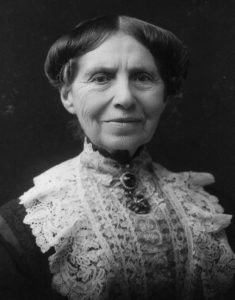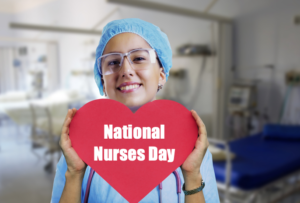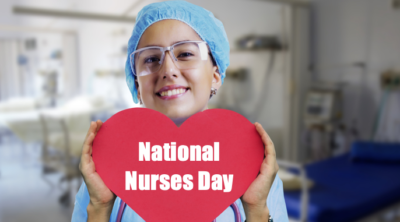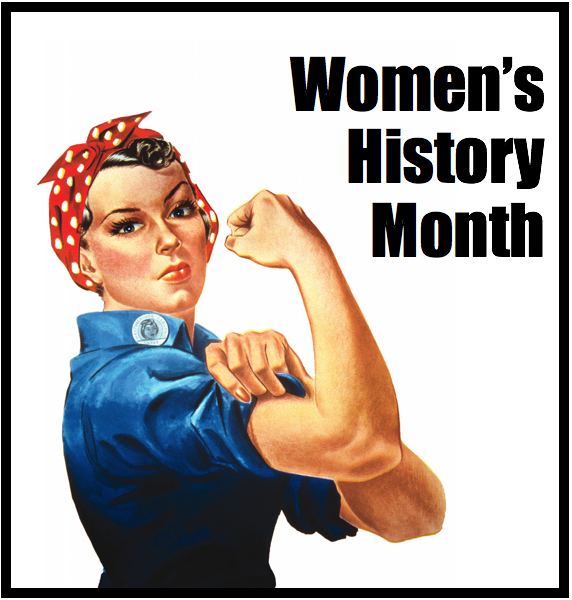Today, May 6, is National Nurses’ Day! Nurses’ Week lasts from May 6 to May 12 each year, ending on the birthday of Florence Nightingale, often considered the mother of modern nursing. Leap into Nurses’ Week by learning about another pioneer of modern nursing with The Walking Classroom!
Have your students walk, listen, and learn about Clara Barton (Complete-#94, 4-#14, STEM-#39), one of the first famous female nurses. In the past, nursing was a mostly male profession!
Nursing Pioneers
 In the 1800s, nursing was far from the clean and caring field we know today. Especially in wartime, infirmaries were unsanitary and many patients died of preventable illness! During the Crimean War, an English nurse named Florence Nightingale finally had enough. She wrote to The Times, and the British Government responded, helping her construct a hospital!
In the 1800s, nursing was far from the clean and caring field we know today. Especially in wartime, infirmaries were unsanitary and many patients died of preventable illness! During the Crimean War, an English nurse named Florence Nightingale finally had enough. She wrote to The Times, and the British Government responded, helping her construct a hospital!
Before Nightingale, nurses didn’t even have to wash their hands! Florence Nightingale is remembered as “The Lady with the Lamp” for her dedicated care of patients, but she was also a pioneer for sanitation in healthcare.
Partway across the world, only half a decade later, the Civil War was starting in America. Clara Barton, a U.S. Patent Office employee, became one of the most dedicated nurses in history. During the Civil War, soldiers were sorely short on medical supplies. Clara organized supply drives, but she also fought for permission to deliver them to the camps! This was an impressive act as, in 1800’s America, few women were nurses.
Clara Barton and the Red Cross
 Dedicated is no overstatement. Clara worked days on end, delivering supplies herself, often to the battlefields! After the war, Clara was pressed by her doctors to go on vacation. Instead, she founded the American chapter of the International Red Cross– after nursing in the Franco-Prussian war, of course. Curious? Learn about her life after the war here!
Dedicated is no overstatement. Clara worked days on end, delivering supplies herself, often to the battlefields! After the war, Clara was pressed by her doctors to go on vacation. Instead, she founded the American chapter of the International Red Cross– after nursing in the Franco-Prussian war, of course. Curious? Learn about her life after the war here!
For the rest of her life, Clara worked to help others. After founding the American Red Cross, she expanded its services to aid for National Disasters. She even pushed for America to ratify the Geneva Conventions! Oh, and speaking of the Red Cross? The Florence Nightingale Medal has been given out by the International Red Cross to exceptional nurses and aides since 1912.
If students are interested to learn more about Clara Barton, try these activities from the National Park Service! Or, set up a virtual program with the Clara Barton Historical Site!
Know your Nursing!
This Nurses’ Week, why not focus on nurses’ contributions in-depth? The Clara Barton Museum has many primary and secondary sources, to support a social studies or reading comprehension activity! Or, start off with some Florence Nightingale facts from National Geographic Kids!
Learn about the history of the Red Cross through their website, starting with Clara Barton. Next, learn about the contributions of famous Red Cross nurses in history!
Florence Nightingale wasn’t just a pioneer of sanitation. She was also one of the first to use statistical data in healthcare! Learn more by starting with this article from the London Science Museum. Nightingale used diagrams and graphs to clearly convey to her audience how poor sanitation and preventable infection was killing soldiers. This no-nonsense and clear presentation worked!
Learn about other timely topics and be on the lookout for more ideas in future posts.





Leave a Reply